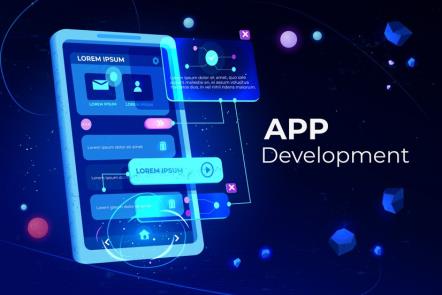The mobile app industry continues to expand at an exponential rate, with technological advancements transforming the way developers create applications. As businesses and developers strive to meet the increasing demands of users, selecting the right technologies becomes crucial for efficient development and a competitive edge. This article explores some of the best technologies for mobile app development in 2024, focusing on their features, benefits, and ideal use cases Best Technology for Mobile App Development.
Flutter: seamless cross-platform development
Google developed Flutter, an open-source UI software development kit, to build natively compiled applications for mobile, web, and desktop from a single codebase. It stands out for its fast development cycles, versatile UI, and native performance.
Key Features:
- Hot Reload: Allows developers to see changes in real time without restarting the app.
- Rich Widget Set: Provides a comprehensive range of customizable widgets that adhere to Google’s Material Design and Apple’s Cupertino looks.
- The Dart programming language uses an optimized codebase for building UIs with animations across all platforms.
Ideal use cases:
- Applications necessitate a stunning user interface with intricate animations and designs.
- Projects where time-to-market is critical Best Technology for Mobile App Development.
React Native: The Power of JavaScript
Facebook created the open-source framework React Native, which allows developers to create mobile apps using JavaScript and React. It’s known for its efficiency in building robust, market-ready, cross-platform mobile applications.
Key Features:
- Live Reloading and Hot Reloading: These features enhance the development process by allowing an immediate view of changes.
- The ecosystem is extensive, offering a wide range of libraries and tools for integration, thereby expanding its capabilities.
- The strong community, supported by thousands of developers and companies, ensures constant updates and improvements.
Ideal use cases:
- Startups and enterprises are looking to develop apps for both iOS and Android simultaneously.
- Applications must utilize current web technologies Best Technology for Mobile App Development.
Swift: The Leading Choice for iOS Development
Swift is a powerful and intuitive programming language for macOS, iOS, watchOS, and TVOS app development. Introduced by Apple, it has quickly become a favorite among developers for its performance and safety features.
Key Features:
- Safety: We designed it with features that help prevent bugs and make code easier to understand.
- Fast Performance: Comparable to C++ in terms of performance, which is essential for intensive applications.
- Interactive Playgrounds: This allows developers to test Swift code without creating a full app, which is great for learning and experimenting.
Ideal use cases:
- Exclusive iOS app development.
- High-performance real-time applications Best Technology for Mobile App Development.
Kotlin: A modern touch for Android development
Kotlin is a modern programming language that makes development faster and more enjoyable. Google officially supports it for Android development, and it is interoperable with Java, a widely used programming language.
Key Features:
- Conciseness reduces the amount of boilerplate code, making it less prone to errors and easier to maintain.
- Interoperability: Java is fully interoperable, allowing for seamless integration with existing projects.
- Tool-friendly: It provides excellent support for development tools such as IntelliJ IDEA and Android Studio.
Ideal use cases:
- Android applications require robust, maintainable code.
- Java developers are transitioning to Kotlin for app development Best Technology for Mobile App Development.
Xamarin:.NET and C# for Mobile Apps
Xamarin is a set of tools and libraries that allow developers to build cross-platform applications using.NET and C#. It is part of the open-source.NET platform and has strong integration with Microsoft tools and services.
Key Features:
- Native Performance: Applications built with Xamarin can leverage native APIs and UI controls to ensure optimal performance.
- A shared codebase allows for the sharing of up to 90% of the code across platforms, which significantly reduces development time and costs.
- The Microsoft Ecosystem offers seamless integration with Microsoft’s ecosystem, making it ideal for enterprise environments.
Ideal use cases:
- Enterprises are integrated into Microsoft’s ecosystem Best Technology for Mobile App Development.
- We prioritize projects that prioritize code sharing across iOS, Android, and Windows.
Conclusion
Choosing the right technology for mobile app development depends largely on project requirements, target audience, and developer expertise. Whether it’s the cross-platform efficiency of Flutter and React Native, the robustness of native languages like Swift and Kotlin, or the enterprise capabilities of Xamarin, each technology offers unique advantages. We encourage developers to assess these technologies according to their specific requirements to create mobile applications that are efficient, effective, and successful Best Technology for Mobile App Development.
